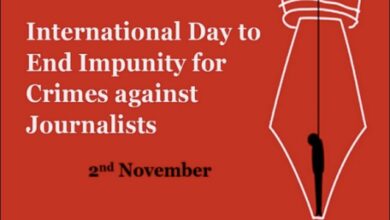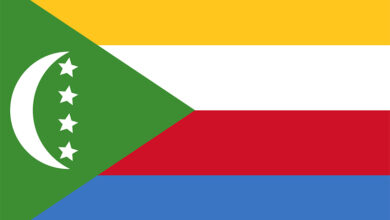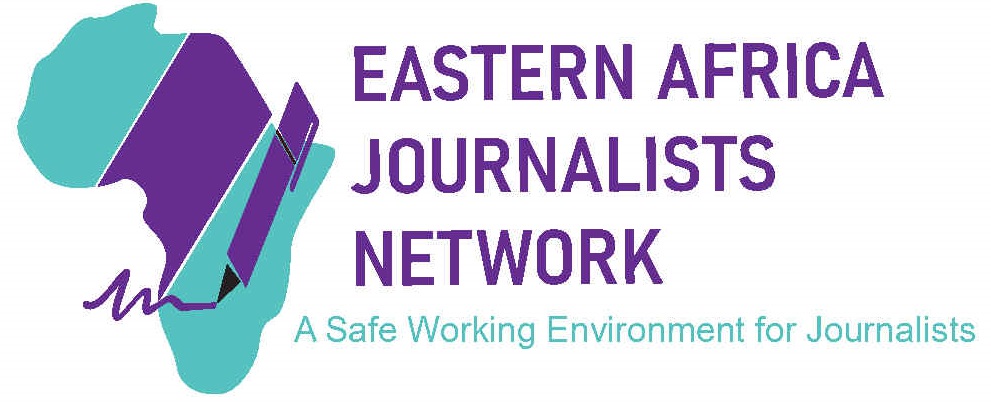Comoros
Comoros is an island country in the Indian Ocean located on the Eastern Coast of Africa with estimated over 869,601 populations. The media age in Comoros is 20.4 years.
Most of the population is Sunni Islamic. However, there also a few hundred non-Muslims, who are mostly of the Christian faith. The biggest city and capital is Moroni. The Union of Comoros is a Federal Republic with a presidential system of government. The total land area is 1861 square kilometers.
Comoros has ratified most of the key international and regional human rights instruments including the African Charter on Human and Peoples Rights. However, it has never submitted any periodic report to the African Commission on Human and Peoples Rights as required by Article 62 of the charter which it ratified in 1986.
Although the Constitution as amended in 2018 guarantees media freedom recent years have experienced incidents of shutting down of a number of private radio stations. Similarly, journalists continue to experience unprecedented breaches on press freedom including but not limited to intimidation, harassments, assaults, physical attacks, arbitrary arrests and censorship being harassed and/or laid off by the state media. This has resulted in increased cases of self-censorship. Some journalists have been forced to flee abroad for safety reasons.
The worsening press freedom situation is attributed to criticism of and the prolonged political tension that followed the 2018 constitutional referendum and the re-election of President Azali Assoumani in 2019.
The Criminal Code and the Criminal Code Procedure passed in 2014 provide for criminal defamation and their enforcement has witnessed huge and heavy penalties for defamation. Journalists suffer above all from a lack of resources and training, and have found it hard to organize according to global media monitors.
Some examples may suffice even though very few agencies actively monitor press violations in the country leaving an impression that the country is a respecter of press freedom. Journalistic activities in the Comoros remained restricted in 2020 and 2021. In January 2021, Masiwa Komor reporter Ali Abdou Mkouboi and Facebook based news outlet FCBK FM reporter Oubeidillah Mchagama were arrested while planning to cover the opposition rally on Grande Comore. They were both charged with participating in an illegal protest. In the same month, news director Binti Mhadjou and editor in chief Moinadjoumoi Papa Ali, both of the Public Comoros Radio and Television Office, were suspended by the Information Minister for purportedly giving favourable coverage to strike participants. They were permitted to return to their roles in March 2021. In December 2020, Mchagama was arrested for disturbing “public order” after reporting on the possibility of a fuel shortage, but was provisionally released later in the month.
The democratic situation has been fragile. This is because of the legacies of the country’s volatile political history, which involves coups and attempted coups, and the opposition crackdown during the 2018 constitutional referendum. Freedom House classifies the country as partly free.
Similarly, the press freedom situation has been deteriorating as fast. The country’s security agencies were reported to monitor social media especially during the Presidential election campaigns in 2019 that culminated in a one-day shutdown of the telecommunications services in March 2019. For instance, Comoros was ranked at 84 in 2021 World Press Freedom Index by the Reporters without borders. This was nine places down from its 75th rank in 2020 where it had dropped from position 56 out of 180 in the 2019.
-

EAJNet Calls on Governments to End Impunity for Crimes Against Journalists in the region
Eastern Africa Journalists Network (EAJNet) has called on the governments in the region to expeditiously investigate and bring to justice…
Read More » -

840 cases in Comoros
Comoros is an island country in the Indian Ocean located on the eastern coast of Africa with estimated over 795…
Read More »
